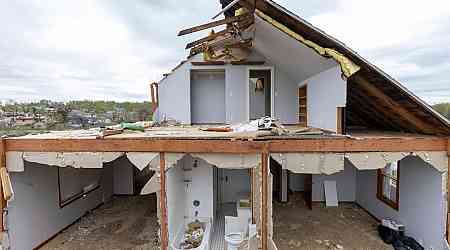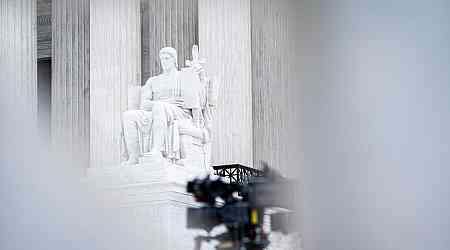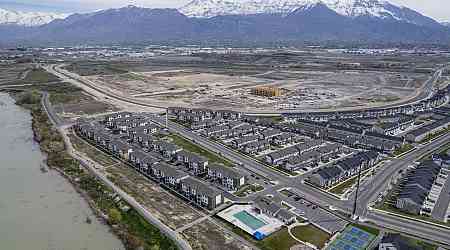The Utah Legislature made another move to bolster its ability to fight federal air quality regulations on Wednesday.
HB373: Environmental Quality Amendments, sponsored by Rep. Casey Snider, R-Paradise, requires the Utah Division of Air Quality, housed within the Department of Environmental Quality (DEQ), to routinely meet with the Legislature’s Federalism Commission to discuss regulations on emissions-producing industries (like oil, gas and mining) — including rules made by the U.S. Environmental Protection Agency (EPA).
The state Federalism Commission, launched in 2013, was created for Utah’s state representatives to confront instances of perceived federal overreach.
“The Legislature doesn’t want to comply with federal law,” Ashley Miller, executive director of the nonprofit Breathe Utah, told The Salt Lake Tribune. “They want to do it their way.”
“The theme up there has been, ‘we don’t think we need to comply with federal regulations because we just can’t meet the stricter standards,’” Miller continued. “That really just doesn’t make any sense, nor should it make any sense to the public.”
Miller referred to another bill passed this legislative session, SB57: Utah Constitutional Sovereignty Act, which sets up a process through which Utah can ignore federal regulations that it deems unconstitutional.
Sen. Scott Sandall, R-Tremonton, was the sponsor of that bill. He said that an example of a federal mandate that Utah should flout is the EPA’s “good neighbor rule,” which aims to reduce emissions that cross state lines. Sandall said that Utah couldn’t meet those standards without jeopardizing the state’s access to electrical power.
“The Legislature probably needs a bigger and broader seat at the table in doing this work between federal government policy on air quality and what the best interests of the State of Utah are,” Sen. Sandall said when presenting HB373 to the Senate floor on Tuesday.
“We are doing all sorts of things in different areas about pushing back on the federal government,” Sen. Nate Blouin, D-Salt Lake City, said on the Senate floor, “and this seems to be another one.”
Miller warned that if Utah continues to try to subvert federal environmental standards, there will be dire consequences for the state’s economy.
“If we start to scale back progress now, everyday Utahns will be the ones to suffer the consequences,” she said. “Everything in Utah will cost more and we will lose good-paying industry jobs.”
DEQ previously worked with the Legislature through the Air Quality Policy Advisory Board — composed of lawmakers, industry representatives, academics and nonprofit members. HB373 repeals that board.
“The Division of Air Quality will continue to work with legislators to improve Utah’s air quality through common-sense policy measures,” DEQ said in a statement to The Tribune. “HB373 provides a forum for the Department of Environmental Quality to exchange information with policy makers and have critical discussions about how we address the environmental challenges Utah faces. We are grateful to the sponsors for their willingness to allow the bill to evolve based on feedback from stakeholders, and look forward to partnering with members of the Federalism Commission.”
Incentives to reduce emissions
HB373 also gives the Utah Division of Oil, Gas and Mining (DOGM) authority to grant tax credits to oil and gas companies for implementing emissions-reducing technologies.
Oil and gas production sites can emit methane, a greenhouse gas more powerful than carbon dioxide, into the atmosphere, contributing to global warming and worsening air quality. The Biden administration has encouraged the industry to employ monitoring technology that can lower emissions.
“We believe that this incentive makes sense...with DOGM, who already regulates and goes out and inspects our facilities on a regular basis,” Rikki Hnrenko-Browning, president of the Utah Petroleum Association, said in the Senate Natural Resources, Agriculture, and Environment Committee this week.
HB373 passed the House and the Senate on Wednesday. If signed by Gov. Spencer Cox, the bill would go into effect on May 1.
function onSignUp() { const token = grecaptcha.getResponse(); if (!token) { alert("Please verify the reCAPTCHA!"); } else { axios .post( "https://8c0ug47jei.execute-api.us-east-1.amazonaws.com/dev/newsletter/checkCaptcha", { token, env: "PROD", } ) .then(({ data: { message } }) => { console.log(message); if (message === "Human


























